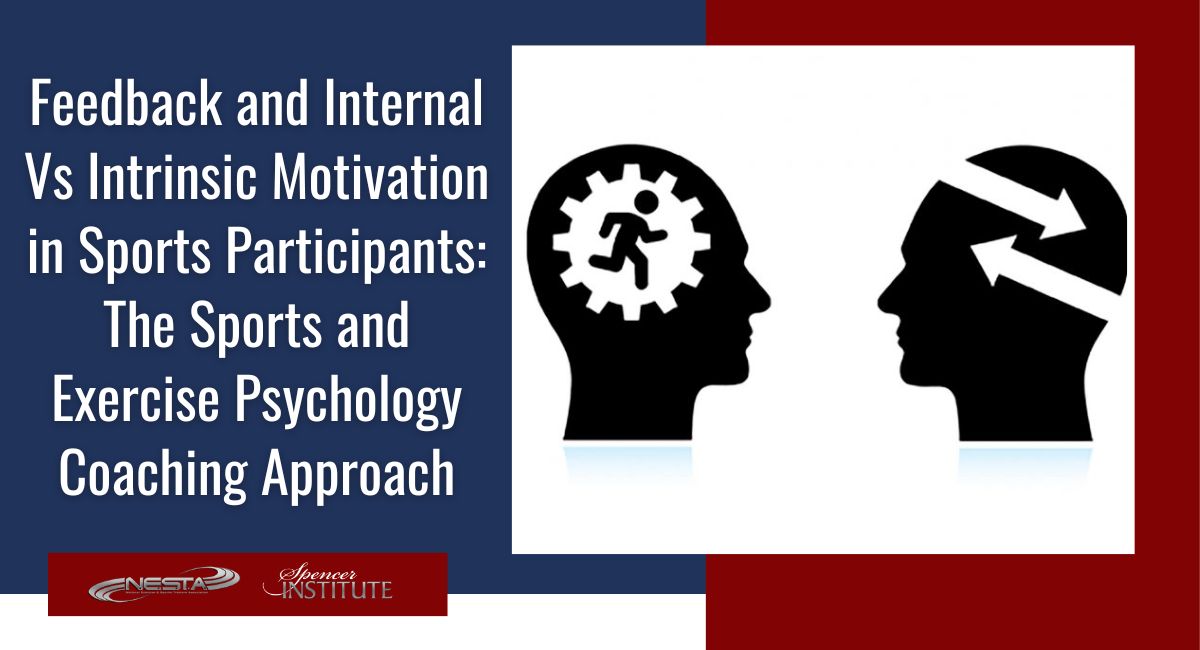Motivation improves performance as it enhances engagement and drives individuals towards achieving their goals. When individuals are motivated, they are more likely to demonstrate higher levels of effort, persistence, and productivity, resulting in improved performance outcomes.
Motivation acts as a catalyst that fuels the intrinsic drive within individuals to succeed and excel in their endeavors, leading to higher performance levels.

Credit: www.nestacertified.com
The Motivation-performance Connection
Does motivation improve performance? This is a key question that many leaders and managers ask themselves. Understanding the link between motivation and performance is crucial for creating a high-performing team or achieving personal success. Motivation can be defined as the driving force that pushes individuals to take action and achieve their goals. On the other hand, performance refers to the actual results or output produced by individuals or teams. When motivation and performance are connected, it leads to increased productivity, improved job satisfaction, and overall success.
Understanding The Link
At its core, the motivation-performance connection can be understood as a cause-and-effect relationship. When individuals are motivated, they are more likely to put in the effort and energy required to perform well. High levels of motivation lead to increased focus, determination, and persistence, which are all critical factors in achieving success. Conversely, when motivation is low, individuals may lack the drive and enthusiasm necessary to perform at their best. Therefore, motivation plays a vital role in influencing an individual’s performance.
Exploring Different Theories
Various theories have been proposed to explain the motivation-performance connection. One well-known theory is the Expectancy Theory, which suggests that individuals perform better when they believe their effort will lead to desired performance outcomes and rewards. In other words, if individuals perceive a strong link between their efforts and the results they desire, their motivation and subsequent performance will be positively impacted.
An additional theory is the Goal-Setting Theory, which emphasizes the importance of setting specific and challenging goals. When individuals have clear goals, it provides them with a sense of direction and purpose, leading to increased motivation and improved performance. This theory highlights the significance of establishing realistic and measurable goals to enhance motivation.
In addition, the Self-Determination Theory proposes that individuals are intrinsically motivated when they have a sense of autonomy, competence, and relatedness. When individuals feel they have control, are competent in their skills, and have positive relationships with others, they are more likely to be motivated and perform at a higher level.
Understanding these theories can provide valuable insights into how motivation impacts performance. By applying these concepts in the workplace or personal life, individuals can take proactive steps to enhance motivation, leading to improved performance and ultimately achieving their goals.

Credit: study.com
Factors That Influence Motivation
Effective and sustained motivation plays a crucial role in improving performance. Whether it is in the workplace, academics, or sports, motivation acts as the driving force behind achieving goals and surpassing expectations. Understanding the factors that influence motivation can help individuals and organizations create an environment that fosters motivation and enhances performance. Below are some key factors that impact motivation:
Intrinsic Motivation
Intrinsic motivation refers to the internal drive and desire to engage in an activity for its own sake, without any external rewards. It is the inherent enjoyment, interest, or satisfaction that an individual derives from participating in an activity. For example, a person who is intrinsically motivated to play music will feel a deep sense of joy and fulfillment while practicing or performing, regardless of external factors such as recognition or monetary rewards.
Extrinsic Motivation
Extrinsic motivation, on the other hand, involves engaging in an activity to attain external rewards or to avoid external punishments. This type of motivation arises from the desire for tangible outcomes, such as money, fame, or praise. For instance, employees may be motivated to work harder and achieve their targets because they know they will receive a bonus or promotion.
Goal Setting
Goal setting is a significant factor influencing motivation. Setting clear and specific goals provides individuals with a target to strive towards, which enhances their motivation to perform well. Goals should be challenging yet realistic, as overly difficult goals can be demotivating, while easy goals may not provide enough motivation. By breaking larger goals into smaller, manageable tasks, individuals can experience a sense of accomplishment as they make progress, further fueling their motivation levels.
Feedback And Recognition
Feedback and recognition are essential drivers of motivation. Constructive feedback helps individuals understand their strengths and areas for improvement, allowing them to continually grow and enhance their performance. Recognizing and rewarding achievements, both big and small, not only acknowledges the efforts put in by individuals but also reinforces their motivation to excel. Regular and timely feedback, along with meaningful recognition, can create a positive feedback loop, where motivation begets better performance and vice versa.
How To Boost Motivation
When it comes to improving performance, motivation plays a crucial role. Motivated employees are more productive, engaged, and driven to achieve their goals. As a business owner or manager, it is essential to understand how to boost motivation within your team. In this article, we will explore four effective strategies to create a positive work environment, provide meaningful work, offer incentives and rewards, and foster a growth mindset.
Creating A Positive Work Environment
A positive work environment is essential for boosting motivation among employees. When individuals feel valued, respected, and supported, they are more likely to be motivated to perform well. Here are some ways to create a positive work environment:
- Encourage open communication and foster a culture of collaboration
- Promote work-life balance and prioritize employee well-being
- Recognize and appreciate achievements and milestones
- Provide opportunities for professional development and growth
Providing Meaningful Work
Offering employees meaningful work is another effective strategy for boosting motivation. When individuals find purpose and significance in their tasks, they are more likely to be engaged and driven to perform at their best. Here are some ways to provide meaningful work:
- Clearly communicate the organization’s mission and goals
- Align individual roles and responsibilities with the broader objectives
- Challenge employees with interesting and varied tasks
- Provide opportunities for autonomy and decision-making
Offering Incentives And Rewards
Incentives and rewards can significantly impact motivation levels. By offering tangible benefits, employees feel motivated to work towards specific goals. Here are some ways to provide incentives and rewards:
| Incentives and Rewards | Benefits |
|---|---|
| Performance-based bonuses | Financial recognition for exceptional achievements |
| Recognition programs | Public acknowledgment and appreciation |
| Flexible work arrangements | Improved work-life balance and increased job satisfaction |
| Career advancement opportunities | Clear growth paths and professional development |
Fostering A Growth Mindset
A growth mindset involves embracing challenges, persisting through setbacks, and believing in continuous improvement. By fostering a growth mindset within your team, you can enhance motivation and performance. Here are some ways to foster a growth mindset:
- Encourage a learning culture and provide resources for skill development
- Promote feedback and constructive criticism
- Support risk-taking and experimentation
- Encourage reflection and learning from failures
By implementing these strategies, you can create a motivating work environment where individuals are empowered to perform their best. Remember, motivation is not a one-time effort but an ongoing process that requires consistent attention and nurturing.

Credit: leadershipmanagement.com.au
Frequently Asked Questions Of Does Motivation Improve Performance
How Does Motivation Improve Productivity?
Motivation boosts productivity by energizing individuals to work efficiently and focus on goals. It fuels enthusiasm, determination, and commitment, leading to higher levels of engagement and effort. Increased motivation also enhances creativity and problem-solving abilities, resulting in improved performance and overall productivity.
How Does Motivation Improve Performance In Sport?
Motivation improves sport performance by driving athletes to set goals, work harder, and push their limits. It boosts focus, determination, and confidence, leading to enhanced physical and mental performance. With increased motivation, athletes persevere through challenges and setbacks, improving their overall competitive performance.
What Is The Relationship Between Motivation And Performance?
Motivation and performance are closely linked. When employees are motivated, they enhance their productivity and achieve better results. Motivated individuals are more engaged, focused, and willing to put in extra effort to accomplish their tasks. This ultimately leads to improved performance and overall success in the workplace.
Does Motivation Make You Better?
Motivation can improve your performance and drive you to achieve your goals. It fuels your determination and focus, pushing you to become better at what you do.
Conclusion
Motivation plays a crucial role in enhancing performance. By boosting enthusiasm and commitment, individuals are better equipped to overcome obstacles and achieve their goals. When employees are motivated, productivity increases and overall job satisfaction improves. Companies that prioritize motivation through effective leadership, recognition, and rewards can experience higher levels of performance and success.
So, invest in motivation and witness the positive impact it has on performance.